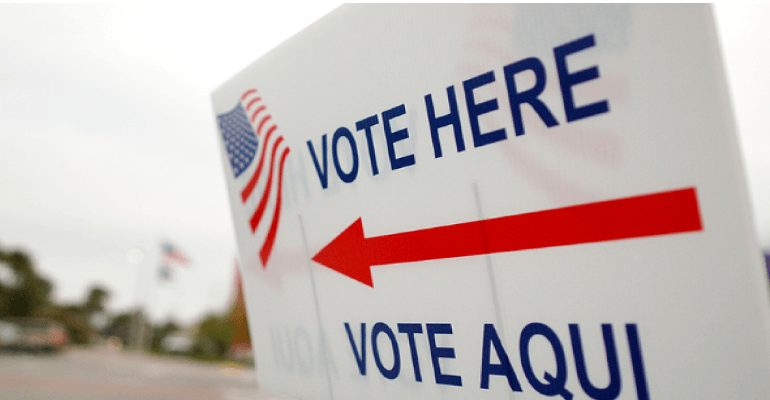
By J.T. Lain
WASHINGTON – Arizona election officials had sharp words Wednesday for President Donald Trump after he suggested that states that are withholding voter information from a presidential commission have something to hide.
“What are they worried about?” Trump asked, during remarks to first meeting of the Presidential Advisory Commission on Election Integrity.
“There’s something, there always is,” Trump said.
“We could say the same thing about him,” shot back Pima County Recorder F. Ann Rodriguez. “What is he hiding in his taxes?”
The commission was appointed by Trump to investigate allegations of voter fraud in the 2016 election, in which he lost the popular vote to Democratic challenger Hillary Clinton.
But Arizona was one of many states that rebuffed some or all of the commission’s request for detailed dataon voters, including names, dates of birth, addresses, voting histories, criminal records, political affiliation and last four digits of Social Security numbers, among other information.
Arizona Secretary of State Michele Reagan said earlier this month that Arizona would not comply with the commission’s request for detailed voter information because of “serious privacy concerns” about the use of the data.
Maricopa County Recorder Adrian Fontes said Wednesday that election officials have a legal duty to protect voter rolls and that Trump’s “ego is not my problem.”
Fontes and other critics have charged that the commission is not about voter fraud but is actually an attempt at voter suppression.
“People were calling and telling me to remove their names from voter rolls” after they heard of the commission request, said Fontes. “That’s voter suppression.”
He said it is the impact on the voter that is important, and not the intent of the commission, worrying that the administration could use personal information of political dissenters against them.
Rodriguez also said her office heard from voters asking to be deregistered, so their information would not be publicized.
The wording of the commission’s request is unsettling to many states as it stated clearly that any information collected would be made available to the public.
Reagan, in an appearance Wednesday on the “PBS NewsHour,” said Arizona law is clear: “You can’t take the info with the intent to publish publicly.”
While she said she is supportive of the commission’s overall goal, Reagan added that she remains “confident in Arizona that we run a really good election.”
Trump has repeatedly claimed that voter fraud is widespread and is the sole reason he lost the popular vote to Clinton last year – a claim that has repeatedly been rejected by most experts. Trump has said that every vote cast in his name was legitimate.
Clinton won the popular vote by almost 3 million but lost handily in the Electoral College, which determines who wins the presidency.
Besides pushback from state elections officials, the commission faced seven lawsuits before it even began its work, from groups that charged its real goal is to crack down on voting rights. The American Civil Liberties Union has called the commission vice chairman, Kansas Secretary of State Kris Kobach, the “king of voter suppression.”
Overall, 44 states have said they will not give all requested information, and states like California, Arizona, and Virginia will not give any information to the White House commission.
Still, the commission aims to root out voter fraud wherever it finds it. One popular example of a potential for fraud is when states list a registered voter who is deceased.
Rodriguez said that might happen if a person is registered in Arizona but dies out of state. If a person dies in Florida on vacation, she said, that state is not required to notify Arizona officials. Unless the family reached out to Arizona or paid for an obituary, Rodriguez said local officials would not know to remove the dead person from the voter rolls.
But Fontes called the commission’s work “a propaganda game, a shame,”
“What the hell are these guys doing and why?” he asked.
On Twitter, Fontes said he is worried about the commission using a “position of power to further suppress voters worse then they already have.”
“This is voter suppression. This is bad for America, this is bad for the republic,” Fontes said.
